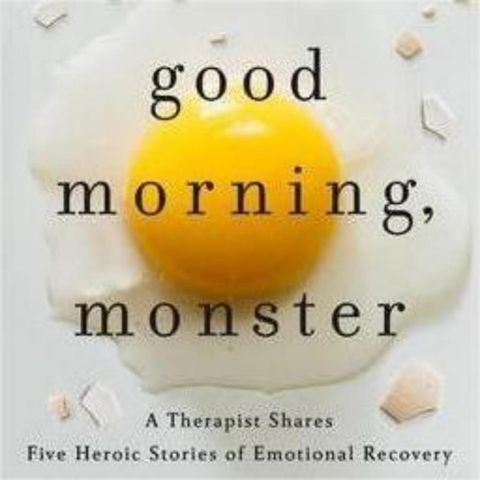A Journey Through Darkness: Exploring Trauma and Resilience in 'Good Morning, Monster' by Catherine Gildiner

Iscriviti gratuitamente
Ascolta questo episodio e molti altri. Goditi i migliori podcast su Spreaker!
Scarica e ascolta ovunque
Scarica i tuoi episodi preferiti e goditi l'ascolto, ovunque tu sia! Iscriviti o accedi ora per ascoltare offline.
Descrizione
Chapter 1:Summary of Book https://www.bookey.app/book/good-morning%2C-monster "Good Morning, Monster" by Catherine Gildiner is a gripping memoir that follows the author's experiences as a therapist working with clients who have faced trauma...
mostra di più"Good Morning, Monster" by Catherine Gildiner is a gripping memoir that follows the author's experiences as a therapist working with clients who have faced trauma and abuse. Gildiner shares her encounters with five clients, including a woman who has been repeatedly sexually assaulted, a man struggling with his identity after being abandoned by his mother, and a young girl dealing with the aftermath of her father's suicide. Through these stories, Gildiner explores the complexities of human emotions and the resilience of the human spirit. The book delves into themes of trauma, healing, and the impact of past experiences on present relationships. Gildiner's writing is honest, empathetic, and ultimately hopeful as she guides her clients towards self-discovery and healing.
Chapter 2:the meaning of Book Good Morning, Monster
"Good Morning, Monster" by Catherine Gildiner is a memoir that follows the author's experiences as a psychologist working with victims of trauma and abuse. The book explores themes of resilience, trauma, and the human capacity for healing and growth. Gildiner shares her own personal story alongside the stories of her patients, providing insight into the complexities of the human psyche and the challenges of overcoming past traumas. Ultimately, the book offers a message of hope and redemption, showing the power of therapy and the human spirit in overcoming adversity.
Chapter 3:Book Good Morning, Monster chapters
Chapter 1: In the first chapter of "Good Morning, Monster," we are introduced to the author, Catherine Gildiner, who is a psychologist and therapist. She shares a story about a patient, John, who was a former KGB agent suffering from severe PTSD. Gildiner delves into the challenges of treating such a complex and traumatized individual.
Chapter 2: In this chapter, Gildiner recounts her experiences working with a young girl named Maria who had been repeatedly sexually abused by her stepfather. Gildiner grapples with the emotional toll that working with trauma survivors like Maria can take on a therapist.
Chapter 3: The third chapter of the book focuses on Gildiner's work with a man named Howard, who had a history of violent outbursts and struggles with anger management. Gildiner explores the deep-rooted issues underlying Howard's behavior and the challenges of reaching a breakthrough with him in therapy.
Chapter 4: In this chapter, Gildiner shares the story of a woman named Belinda who was struggling with addiction and trauma from her childhood. Gildiner delves into the complexities of treating individuals with dual diagnoses and the unique challenges they present in therapy.
Chapter 5: The fifth chapter of "Good Morning, Monster" follows Gildiner as she works with a woman named Lily who had a history of engaging in self-destructive behaviors. Gildiner explores the underlying trauma and emotional wounds that drive Lily's behavior and works to help her heal and find healthier coping mechanisms.
Overall, "Good Morning, Monster" offers a poignant and insightful look into the world of therapy and the profound impact that trauma can have on individuals. Through Gildiner's engaging storytelling and compassionate approach, readers are invited to reflect on the power of therapy in helping individuals heal and navigate their past traumas.
Chapter 4: Quotes From Book Good Morning, Monster
1. "The monster you can see is never as terrifying as the one you can't."
2. "Sometimes the scariest monsters are the ones inside us, lurking in the shadows of our own minds."
3. "In facing our monsters head-on, we often find that they are not nearly as powerful as we once believed them to be."
4. "The path to healing often begins by acknowledging the monsters that haunt us, and finding the courage to confront them."
5. "Monsters are just as human as we are, capable of both great harm and great vulnerability."
6. "It takes great strength to reach out for help when we are being consumed by our own demons."
7. "Facing our monsters can be a painful and difficult process, but it is necessary in order to move forward and find peace."
8. "The monsters we carry with us can become our greatest teachers, showing us the depths of our own resilience and courage."
9. "Sometimes the bravest thing we can do is to ask for help, to let someone else see the monsters that we hide within ourselves."
10. "In the darkness of our own minds, it is often the light of others that helps us to see the monsters for what they truly are – just shadows of our own fears."
Informazioni
| Autore | Bookey |
| Organizzazione | pancheng li |
| Sito | - |
| Tag |
Copyright 2024 - Spreaker Inc. an iHeartMedia Company
